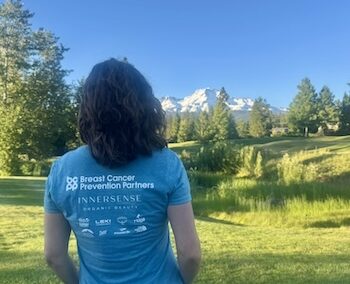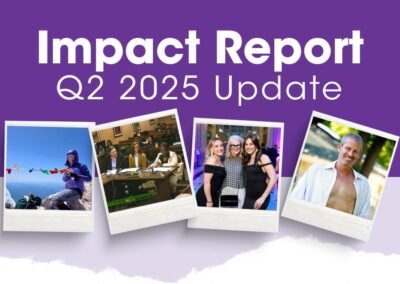This suite of five federal safer beauty bills will address gaps in cosmetic safety by banning the worst chemicals, including the entire class of PFAS; requiring fragrance ingredient disclosure; protecting women of color and salon workers; and creating supply chain transparency.
FOR IMMEDIATE RELEASE
PRESS CONTACT:
Erika Wilhelm, Breast Cancer Prevention Partners, 415-539-5005
(Washington, D.C. – July 9) Breast Cancer Prevention Partners (BCPP), a national organization focused on eliminating toxic chemicals and other environmental risk factors linked to cancer, will host an advocacy “Fly-in” of the nation’s leading clean beauty industry experts. These thought leaders will meet with members of Congress and White House officials to push for a suite of federal bills that will make beauty products safer for all.
This two-day trip to Capitol Hill and the White House will also highlight one of BCPP’s most important initiatives, the Campaign for Safe Cosmetics (CSC), and promote its key legislative priorities. Currently celebrating its 20th year anniversary, CSC is known as the original trailblazer of the clean beauty movement and has engaged millions of consumers to move the $100 billion cosmetics industry toward a new standard of safer beauty and personal care products.
Members of Congress and White House officials will meet with this important group of leaders and early pioneers in the clean cosmetics industry, who have helped to expand the marketplace of safer, more transparent products by not using chemicals that harm people and the planet and voluntarily disclosing their fragrance ingredients. These experts include:
- Lisa Bronner, Consumer Advocate & Granddaughter of Founder, Emanual Bronner, Dr. Bronner’s
- Hannah Diop, Co-Founder & CEO; Sister-in-law of Co-Founder Issae Rae, Sienna Naturals
- Rebecca Hamilton, Owner and Co-CEO, W.S. Badger Company
- Janet Nudelman, Co-Founder & Director, Campaign for Safe Cosmetics
- Greg Starkman, Founder & CEO, Innersense Organic Beauty
- Kiran Stordalen, Co-Owner & President, Intelligent Nutrients
“These are some of the most important leaders in the clean cosmetics industry,” said Janet Nudelman, Director of BCPP’s Campaign for Safe Cosmetics, “We couldn’t be more excited to introduce them to key White House officials and members of Congress who we know will value their commitment to raising a high bar for cosmetic safety, and their industry insights and expertise as much as we do.”
Most consumers do not realize that the beauty and personal care products they use daily might be unsafe. Yet, it’s perfectly legal for these products to contain hazardous ingredients. From cancer-causing asbestos in baby powder to hormone-disrupting phthalates in body wash to brain-damaging lead in lipstick, the situation is dangerous to the health of all. Breast cancer, learning disabilities, early puberty, and reproductive and developmental harm are all on the rise; hundreds of scientific studies show it’s due in part to our ongoing daily exposure to toxic chemicals lurking in our beauty and personal care products.
The five federal bills will make beauty and personal care products safer for everyone by getting the toxic chemicals out, reducing hazardous chemical exposures for the most vulnerable and making ingredient transparency the new industry standard.
The five bills cover almost every aspect of personal care product safety. They are:
- H.R. 3619: The Toxic-Free Beauty Act (Reps. Jan Schakowsky (IL-09) and Lizzie Fletcher (TX-07): Bans 11 of the most toxic chemicals, including mercury, formaldehyde, parabens, phthalates, and phenylenediamines (hair dye chemicals). The European Union and five states (CA, MD, WA, OR, VT) have banned these chemicals, yet they are used in cosmetic products sold legally in the United States.
- H.R. 3620: Cosmetic Safety Protections for Communities of Color and Salon Workers (Reps. Jan Schakowsky (IL-09) and Lisa Blunt Rochester (DE-At Large)): Funds research, resource materials, education and outreach, and the development of safer chemicals to protect the health of women of color and salon workers. These two vulnerable populations are among the most highly exposed to toxic chemicals because of the cosmetic products marketed to them or commonly found in their workplaces.
- H.R. 3621: Cosmetic Fragrance and Flavor Right to Know Act (Reps. Jan Schakowsky (IL-09) and Doris Matsui (CA-07)): Requires disclosure on product labels and websites of secret, unlabeled, and often toxic ingredients in fragrance and flavors in beauty and personal care products.
- H.R. 3622: Cosmetic Supply Chain Transparency Act (Rep. Jan Schakowsky (IL-09)): Requires suppliers, manufacturers, and formulators of cosmetic ingredients (including fragrance formulations), raw materials, products, or packaging to provide cosmetic companies with full ingredient disclosure and safety data so they can make safer products.
- H.R. 6519: No PFAS in Cosmetics Act (Reps. Debbie Dingell (D-MI), Brian Fitzpatrick (R-PA), and Rep. Annie Kuster (D-NH)): Bans the entire class of PFAS from being intentionally added to beauty and personal care products and also prohibits upstream suppliers of ingredients, raw materials, products or packing from adding PFAS to a cosmetic product. Six states have already banned the entire class of PFAS from cosmetics (CA, CO, OR, WA, MN, VT).
America lags behind the rest of the developed world in cosmetic safety. For example, the European Union bans 2,400 chemicals from cosmetics, while the U.S. FDA still only bans or restricts 11. The time for change is now. Support Safer Beauty for All!
For more information, contact Erika Wilhelm, Breast Cancer Prevention Partners, 415-539-5005.
###
Breast Cancer Prevention Partners is the only national science-based policy and advocacy organization focused on preventing breast cancer by eliminating our exposure to toxic chemicals. www.bcpp.org.
BCPP’s Campaign for Safe Cosmetics leads the movement to make beauty and personal care products safer for all. www.safecosmetics.org



